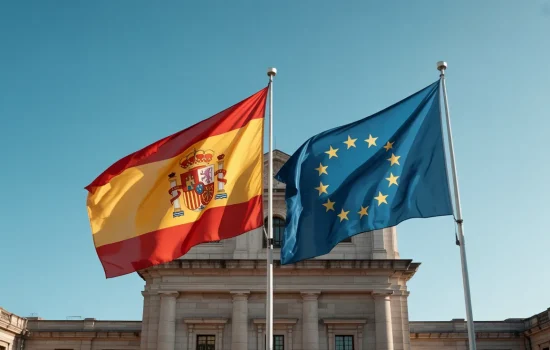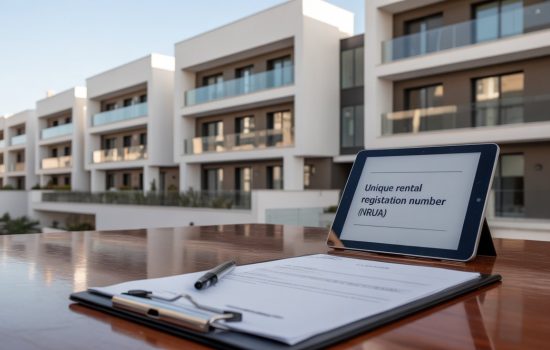
More Information for Citizens and a compulsory visit to the Notary.
The new Real Estate Credit Law will come into effect on Monday June 17 reinforcing consumer protection and legal security at the pre-contractual phase of mortgage loans in Spain.
</h2 >
This law grants notaries an important function, being their duty to ensure that financial institutions provide citizens with all the information established by the Law and offer unbiased and free advice.
All of this will have to take place at least within the ten days prior to the authorisation and signature of the deeds of the mortgage loans in Spain.
What does this mean for you if you are getting a mortgage in Spain?
It means that once you have the entity and the type of credit of your choice, you will have to go to your notary before the authorisation and signature of the credit mortgage (pre-contractual phase) and on the day of the authorisation and signature (contractual phase).
Pre-contractual phase of Spanish mortgage loans
Once you have selected the financial entity to sign your mortgage with, we enter the so-called pre-contractual phase of the loan as set out in the Law in force regulating real estate contracts, from June 16, 2019.
This law grants the notary an important role in the pre-contractual phase of the loan as he or she must ensure compliance with the duties of the financial institution and provide you with impartial and free advice.
After having decided the financial institution and the credit most appropriate to your interests, you will have a period of ten days – prior to the authorisation and signing of the public deed of your loan – to visit the notary of your choice.
It is your duty to inform the financial institution of the name of the notary you have chosen so that he or she may send you – by electronic means – all the documentation related to your mortgage loan in Spain.
When your notary received all documents from the financial institution of your choice, you will then proceed to meet him or her.
How can the notary help you in the pre-contractual phase of the mortgage loan in Spain?
The notary will verify that the financial institution has delivered all the required documentation according to the type of mortgage loan requested by you, and that it has done so in the appropriate time. That is, it will ensure that you have received:
- The draft loan contract
- The European Standardised Information Sheet (ESIS)
- The Standardised Notice Card (FiAE from Spanish Ficha Europea de Información Normalizada)
- A simulation of the periodic instalments to be met in different cases showing the possible changes in interest rates.
- A document on the expenses associated with the public writing of the credit.
The notary will explain the most important and relevant aspects of the loan and will answer all your questions so that you can have – with his or her impartial advice – a complete understanding of it, and consequently, a complete understanding of your rights and obligations. A small test will ensure you have no doubts on the matter.
The notary will write a notarial deed free of cost, recording the facts checked and the explanations given to you, the consumer, as well as the questions that you may have raised with your responses.
Contractual phase or public deed of Spanish mortgage loans
After these ten days – and after you (and/or your guarantors should you have any) have signed the notarial deed – the so-called contractual phase begins with the authorisation of the deeds of the sale and the mortgage loan, which are usually signed simultaneously. This is your last chace to clarify any doubts you may have, because once the deeds are authorised by the notary, it will be impossible to change your mind.
On the day of the signature, the sellers, the representatives of the bank and you as buyer and borrower meet before the notary.
The public deed will contain all the basic concepts of the mortgage loan already supervised and explained in the previous act – which the notary will remind you and list again – especially all the sections included in the FEIN, such as the capital, the terms, the ordinary interest and the APR (Annual Percentage Rate), as well as the commissions and the expenses that each pay is due to pay. The constitution of the mortgage and the powers conferred on the creditor to protect his/her right will also appear.
In addition, the notary will include in the public deed of the mortgage loan a form of identification of the notarial deed carried out in the pre-contractual phase, to prove the impartial advice provided by the notary and that the borrower has understood and accepted the content of all the documents, so that the principle of transparency that guides the new regulations is complied with.
The notary will electronically deliver or send you a copy free of charge, and the Property Registry will send you a literal note of the registration and of the delivery and qualification note, free of charge and electronically. They will be sent to the email address that you had previously indicated.
Complicated?
If you are thinking of applying for a mortgage to buy a property in Spain, we can help.
At Fuster & Associates we have already adapted our systems to the new measures imposed by the Spanish government, and we can guide you through the entire process, from finding the loans with the best conditions to representing you before the notary.
Always with you so you can enjoy your new life in Spain without any hassles! Ask us how about mortgage in Spain!
We want to help you navigate all the legal complexities that come with your home buying in Spain, but this article is legal information and should not be seen as legal advice.
- View more post about: Purchase Conveyancing





